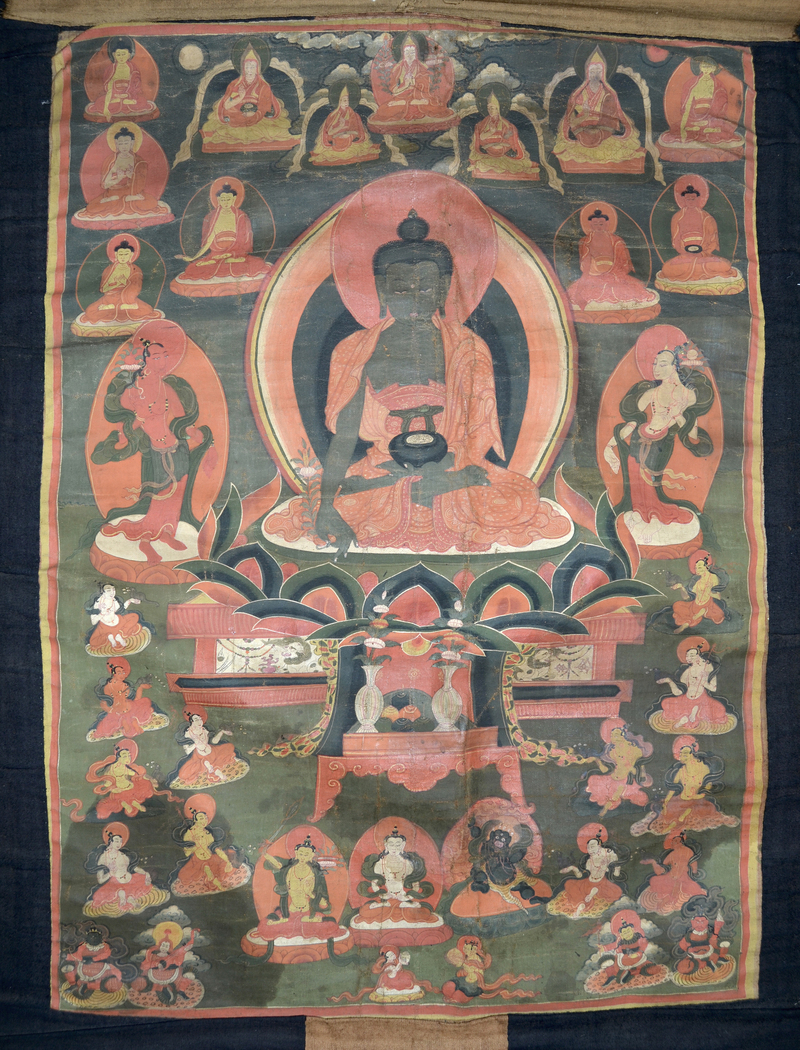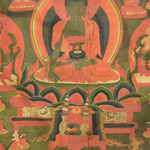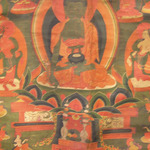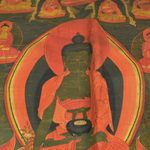| Native Name | Thangka |
| Object Number | 51-41-9 |
| Current Location | Collections Storage |
| Culture | Tibetan | Tibetan Buddhism | Buddhist |
| Provenience | East Tibet |
| Date Made | 19th Century |
| Section | Asian |
| Iconography | Bhaisajyaguru Buddha | Suryaprabha | Chandraprabha | The Seven Buddhas of Medicine | Tsongkhapa | Lama | Attendants | Manjusri | Avalokitesvara | Deva | Brahma | Indra | Vajrapani | Yaksa | Jewel-Spitting Mongoose |
| Inscription Language | Chinese Language | Chinese Language |
| Description | Painting of Bhaisajyaguru, Medicine Buddha, with his associated deities of Suryaprabha, Chandraprabha and the 7 Buddhas of Medicine. Thangkas are paintings which are often used as meditational aids. The Buddha holds a bowl made of lapis lazuli which holds a divine healing nectar (amṛta) which is meant to be received through meditation. Also represented are Tsongkhapa and his two attendants, two high lama incarnations. Below the throne is Manjusri, Avalokitesvara, Vajrapani in demon form, 12 Yaksa (each holding a mongoose spewing jewels), 4 Deva Kings, Brahma and Indra. The writing on the silk cover is unrelated to the subject matter of the thangka. |
| Credit Line | Gift of Schuyler V. R. Cammann, 1951 |
Report problems and issues to digitalmedia@pennmuseum.org.






